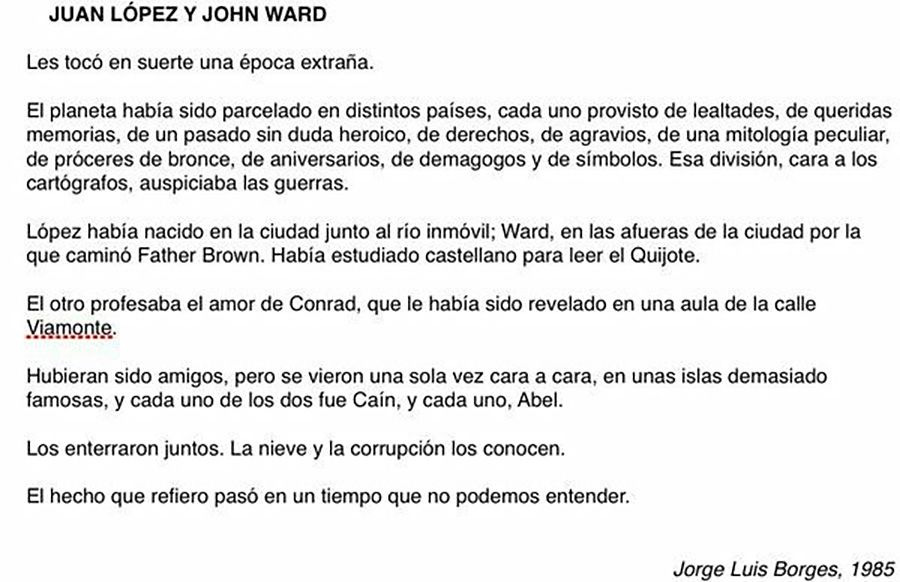The Malvinas-Falkland's War by Diana Ferraro
Jorge Luis Borges, the main Argentine poet in the 20th century couldn’t avoid writing about the war which opposed Argentina and its longtime partner Great Britain, sometimes the closest of friends and, others, the chosen enemy to pound the nation’s chest about national pride, particularly when it had been lost by some government antinational wrongdoings. This feeling has always been smartly played by the British Intelligence for its own purposes and the Malvinas-Falklands War in 1982 was the consequence of the interaction of a blind military Argentine leader with a cunning British leader, Margaret Thatcher, over a South-Atlantic collection of islands which both sides know belonged to the Spanish Empire; they were part of the Virreynato del Rio de la Plata, and, with the independence, were inherited by Argentina, and later illegally but peacefully colonized by the British. The conflict between property and usage continues until this day.
Borges's poem Juan Lopez and John Ward was published for the first time in the Argentine newspaper Clarin, shortly after the end of the war, on August 26th 1982. Of both British and Argentine descent, Borges couldn't but feel this war as a different kind of civil war:
"López habia nacido en la ciudad junto al rio inmóvil; Ward, en las afueras de la ciudad por la que caminó Father Brown. Habia estudiado castellano para leer el Quijote. El otro profesaba el amor de Conrad, que le habia sido revelado en una aula de la calle Viamonte."
("Lopez was born in the city beside the tawny river; Ward, on the outskirts of the city where Father Brown walked. He had studied Spanish in order to read Quijote.The other one professed a love for Conrad, who had been revealed to him in a classroom on Viamonte Street.")
Both soldiers could have been friends, Borges says, were not that "they saw each other face to face only once, on some overly famous islands, and each one of them was Cain, and each was Abel."
Borges pointed out the tragic human origin of any war and, through his poem, he went beyond his personal feelings to remind us that, in the end, every war can be seen as a civil war, that is, a war between human siblings no matter to which nation they belong.
